
The fascination of ultramarathons: further and further
A marathon is not far enough for you? Welcome to the club: for a select group of athletes around the world, running only begins at the 42,195-kilometre brand. This is because the ultra-marathon cracks compete in races that are often over 100,000 metres long. For these exceptional talents, pushing their bodies to their limits and performing almost inhuman feats is their daily bread.
Where marathon runners raise their hands to the sky, completely exhausted but infinitely satisfied, the competition really begins for a very special breed of athlete. The ultramarathon discipline is increasingly gaining attention in the 21st century as it supports the hubris of technology, business and politics: Always better, always bigger and always further. I tried to find out why Filippo Rossi, Takahiro Sunada, Ludwick Mamabolo, Bruce Fordyce and many others are thirsting to run non-stop.
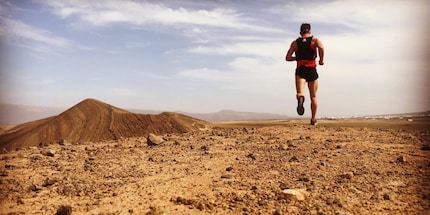
In any weather
They can be found in the most remote corners of the world: Ultramarathon runners can be found from New Zealand to La Réunion to Antarctica. The weather or even the climatic conditions are irrelevant. They run wherever there is ground beneath their feet. The different environments and temperatures from below freezing to well above are an integral part of the everyday life of these endurance athletes. Ice-cold snow, hot sand or rock-hard scree slopes are the playgrounds of these extreme athletes, who can be found all over the globe.
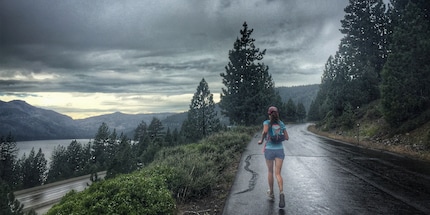
Ultramarathon runners defy all odds - including the weather
Farther than you can think
And the following always applies: the further, the better. The higher, the more challenging. And the more remote, the more specialised. If "normal" is an unfamiliar word to you, a marathon becomes a short distance and a race only starts at kilometre 100, then you should seriously consider switching to the ultramarathon discipline. The most popular distances in this category are races over 50, 75, 100, 161 (equivalent to 100 miles) or 250 kilometres. Hour or stage races are also predestined competitions for ultramarathon runners. The former usually end after 6 or 24 hours, while the latter often last several days or even weeks.
Journalist and ultrarunner in one
Filippo Rossi, recently in the news for his profession as a freelance journalist, is Swiss and an enthusiastic ultramarathon runner. His latest project, completing the Grand Slam of the Four Deserts on four different contingents, already says a lot about his character. "I find the strength to grow in personal defeats. They give me the courage to get better and learn from my mistakes. For me, being a true athlete means never giving up," says Rossi in an interview. According to Rossi, coming through the ultramarathon injury-free is nothing short of a miracle. "I train, plan and pray to minimise injuries and risks to an absolute minimum."
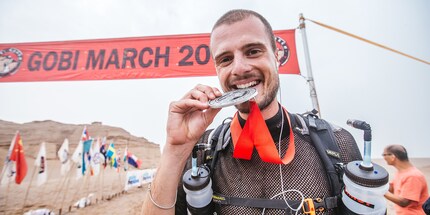
Tips for beginners
First things first: you won't become the best ultramarathon runner of all time overnight. Never. It takes a lot of patience, perseverance and training. If, for example, short runs of 10 or 20 kilometres are on the programme when preparing for a marathon, this can easily be 30 or 40 kilometres for an ultramarathon. In addition, mental training is just as important as physical preparation. As with the marathon, nutrition is also a key element and should not be neglected. Incidentally, there is no off-season for ultramarathons; you can and should always train. Filippo Rossi gives beginners the following tips: "Test the limits of your body, never be afraid and believe in yourself. It's never too late, because everyone has started from scratch at some point."
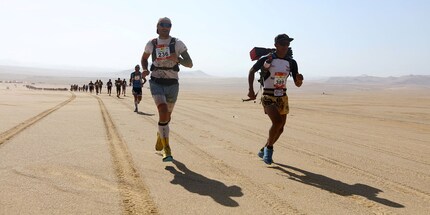
Far from a marathon
Fact: As a marathon runner, you have an advantage if you have decided to run an ultramarathon. However, please note that this is no guarantee of a successful long-distance run. On the contrary, you may feel too confident. Because the differences are striking: in an ultramarathon, you run over snow, sand and scree. There is no average speed, the terrain determines your pace. The footwear can hardly be compared, because your feet experience stresses that you have never felt before. You should also always keep an eye on the ground - where you put your foot can make the difference between victory and defeat. And last but not least: time doesn't matter. It's all about getting there.
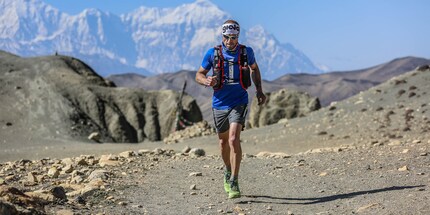
Not much in common with a marathon: ultramarathons are longer, harder and more painful
No limits
The fascination of ultramarathons lies not only in the length of the races, but also in the climatic conditions, the locations and the demands on the runner. If you now think that ultramarathon runners have the privilege of travelling to and admiring unique places, you are wrong. The first few kilometres are to be enjoyed, yes. But after that, it's all about bare survival. Pushing your body to its limits - and beyond. Pushing yourself to the maximum and never being afraid. Admitting defeat but never giving up. Celebrating successes, but always wanting to achieve more. Block out pain and run against it. That is ultramarathon.
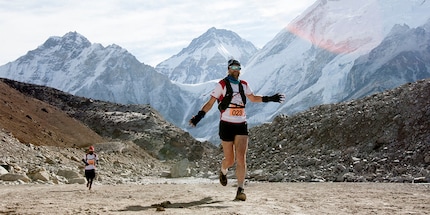
When I'm not stuffing my face with sweets, you'll catch me running around in the gym hall. I’m a passionate floorball player and coach. On rainy days, I tinker with my homebuilt PCs, robots or other gadgets. Music is always my trusted companion. I also enjoy tackling hilly terrain on my road bike and criss-crossing the country on my cross-country skis.
From the latest iPhone to the return of 80s fashion. The editorial team will help you make sense of it all.
Show all